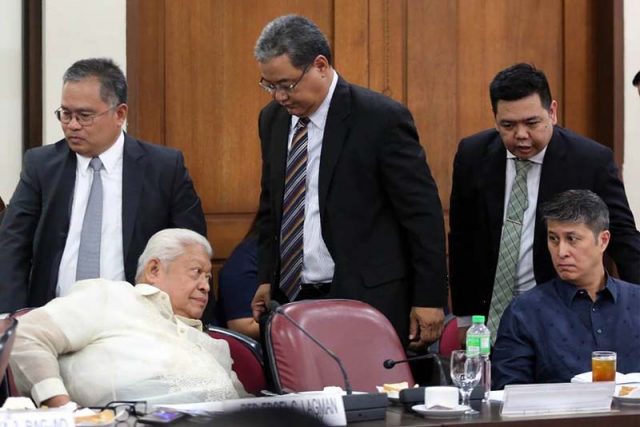
Atty. Mel Sta. Maria is the Dean of the Far Eastern University Institute of Law. He also teaches at the Ateneo de Manila School of Law and the Pamantasan ng Lungsod ng Maynila College of Law.
On October 4, 2017, President Duterte threatened to file another impeachment case against Chief Justice Sereno over what he claimed was alleged corruption.
This was after the House of Representatives had already entertained the impeachment complaint of Atty. Larry Gadon. In that proceeding, Supreme Court Justices Teresita De Castro, Francis Jardeleza, Noel Tijam and former Justice Arturo Brion have lined up to testify against her.
The parties against Chief Justice Sereno appear to be formidable. All branches of government — the executive, legislature and the judiciary — are duly represented. Whether by design or not, the Chief Justice of the Republic is expected to be further beleaguered by a barrage of “damaging” testimonies.
And all these are happening at the House of Representative Justice Committee with one great disadvantage to the Chief Justice. Her lawyers are forbidden to cross-examine the complainant and the witnesses. Nothing can be more unfair.
As the great trial lawyer John Henry Wigmore said: “Cross examination is the greatest legal engine ever invented for the discovery of the truth.” It exposes the undue bias of a witness and the falsehood of his/her narration.
Done effectively, questions and answers in a cross-examination can reveal ill-motivations like envy, revenge, spite or simply pure annoyance. Distortion of crucial points in the testimony can unfold. The mere cringing of a witness confronted with a devastatingly probing question can reveal so much of his/her incredulity.
In the case of the impeachment proceeding against the Chief Justice, witnesses are not tested in the crucible of effective cross-examination. There have been attempts by a few politicians to do so, but these cannot even remotely compare to the way good lawyers conduct this important exercise.
The House Justice Committee’s position is that the Chief Justice herself can conduct the cross-examination. Nobody is prohibiting her. But this was not her choice to repel the allegations against her. Constitutional due process and even the basic elementary sense of justice demand that all persons must be accorded the right to decide the manner they think will defend their interest in the most effective way. Forbidding the Chief Justice’s lawyers to cross-examine thwarts due process.
Whether the House of Representative likes it or not, this deprivation is a lingering blemish tainting the whole impeachment process as nothing more than an institutional persecution. It has no credibility at all. And, to many, if the Chief Justice can be the victim of this kind of injustice, surely anybody of lesser stature or with no stature at all — an ordinary law-abiding citizen — can easily be subjected to the same fate.
“Justice denied anywhere diminishes justice everywhere.” — Martin Luther King, Jr.







